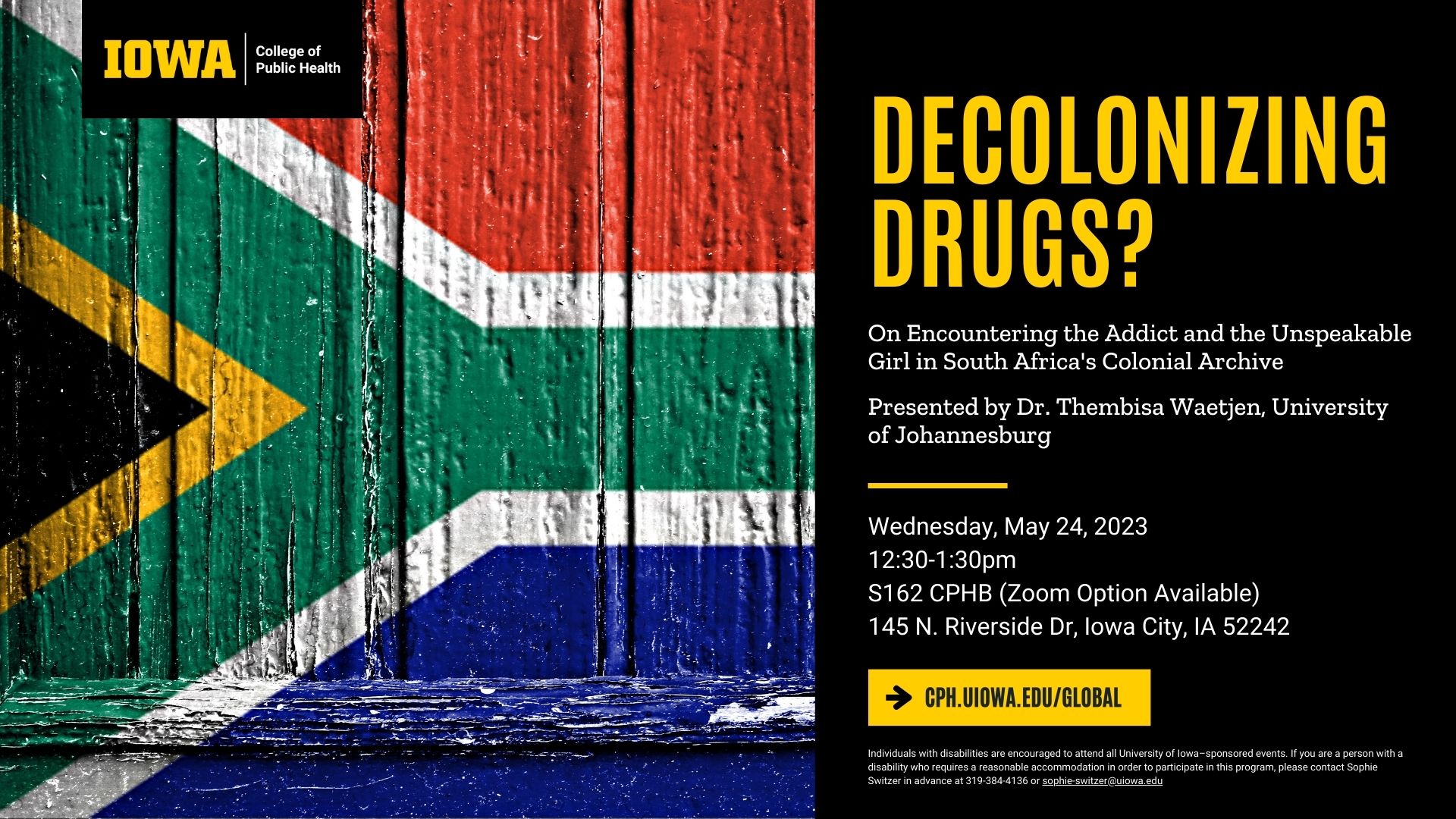Decolonising Drugs / Histories? On Encountering the Addict and the Unspeakable Girl in South Africa’s Colonial Archive

How can we think about decolonizing drugs histories, and of what relevance is such a project for reimagining current approaches to drug policy and to treatment of people who use? I open these questions through a methodological thought experiment, using Giorgio Agamben’s elaboration of the concept of "unspeakability" in a search for ways to apprehend the form-of-life of a specific historical subject. That subject is a woman who called herself Daisy Harris (1884-1911), who first appears in the archive within a 1910 Cape Town police report as a "European [white]" opium addict—but with additional biographical fragments revealing other names and other racial profilings. In recounting Daisy’s story, and my own process of assembling their elements within a wider survey of 20th century South African drug politics, I propose that we apprehend the "addict"—even if provisionally—as Agamben’s "unspeakable girl"—a form of knowledge that initiates the knower. This, I suggest, is where recognition (and, to be provocative, love) may enter as a "decolonial" impulse.
Dr. Thembisa Waetjen is an Associate Professor of History at the University of Johannesburg. Her research explores modern South African political history through the lens of drug substances, currently funded by medical humanities grants from the South African National Research Foundation and the Wellcome Trust (UK). With Maziyar Ghiabi (Exeter) she recently guest-edited the special journal issue “In and Beyond the Colony/ Writing Drugs from the South,” which included her article “Apartheid’s 1971 Drug Law: Between Cannabis and Control in South Africa” (See Social History of Alcohol and Drugs, U Chicago, 2022). She has edited a multi-disciplinary book, Opioids in South Africa: Towards a Policy of Harm Reduction (HSRC Press, 2019). Thembisa teaches courses in Global History, Historical Methods, and Epidemics in History, and received the Faculty of Humanity’s Teaching Innovation Award for 2021.
Dr. Waetjen is visiting as a guest of Dr. Oluwafemi Adeagbo, Department of Community and Behavioral Health. Her visit is sponsored by UI International Programs and the Stanley-UI Foundation Support Organization
A zoom option is available for this presentation. Please contact cph-global@uiowa.edu for more information.
Individuals with disabilities are encouraged to attend all University of Iowa–sponsored events. If you are a person with a disability who requires a reasonable accommodation in order to participate in this program, please contact Sophie Switzer in advance at (319)384-4136 or sophie-switzer@uiowa.edu